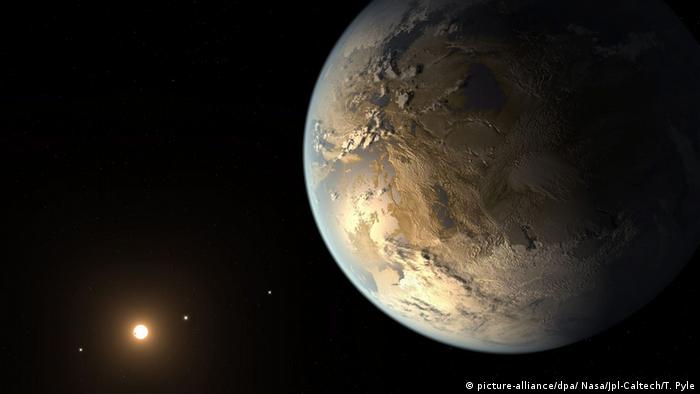ASTRONOMY
NASA telescope Kepler discovery brings scientists closer to another Earth than ever
A new discovery by astronomers doubles the number of known planets that could support life. Some of the researchers believe it is only a matter of time before we find life beyond the Earth.
Scientists have discovered three or four new Earth-like planets outside our solar system that exist within the very thin "Goldilocks" band between too hot and too cold that makes them habitable. Spotted by NASA's planet-hunting Kepler telescope, two of the planets are the closest to our solar system of any detected before - at about 500 and 1,100 light years away.
"We are now closer than we have ever been to finding a twin for Earth around another star…these candidates represent the closest analogs to the Earth's own system found to date," said Fergal Mullally of the Kepler Science Office at a meeting of the American Astronomical Society in Seattle, where the paper presenting the findings was given.
The two planets are likely to be rocky like Earth, not gas giants or ice worlds. They are approximately the same size as Earth, and receive about the same amount of energy from their stars as we do from our sun. However, considering their positions, if they have atmospheres similar to ours, one would have a temperature of around 140 degrees Celsius and the other at a chilly zero.
Guillermo Torres of the Harvard-Smitsonian Center for Astrophysics pointed out that although these temperatures are extreme for humans, bacteria can live quite comfortably in these climates - so the possibility of life evolving on these two new twin-Earths cannot be dismissed. Torres believes that planets like ours must be common throughout the cosmos, though he cannot yet prove it.
This discovery doubles the number of known Earth-like planets to eight, a tiny fraction of the more than 1,000 worlds detected by Kepler. Added to those found by other telescopes, scientists have now discovered more than 1,800 planets outside the solar system.
es/bk (AP, AFP dw de


No comments:
Post a Comment